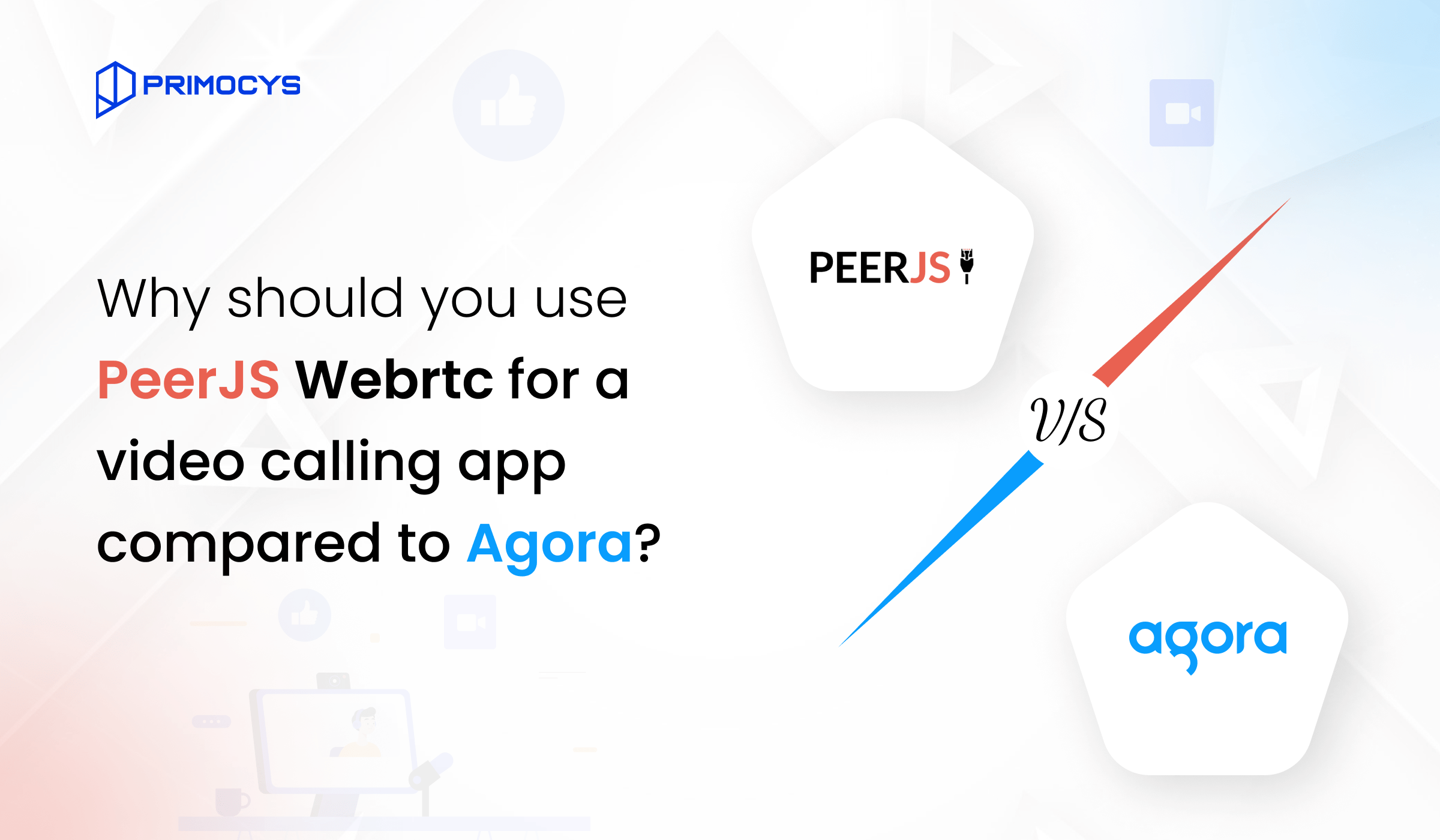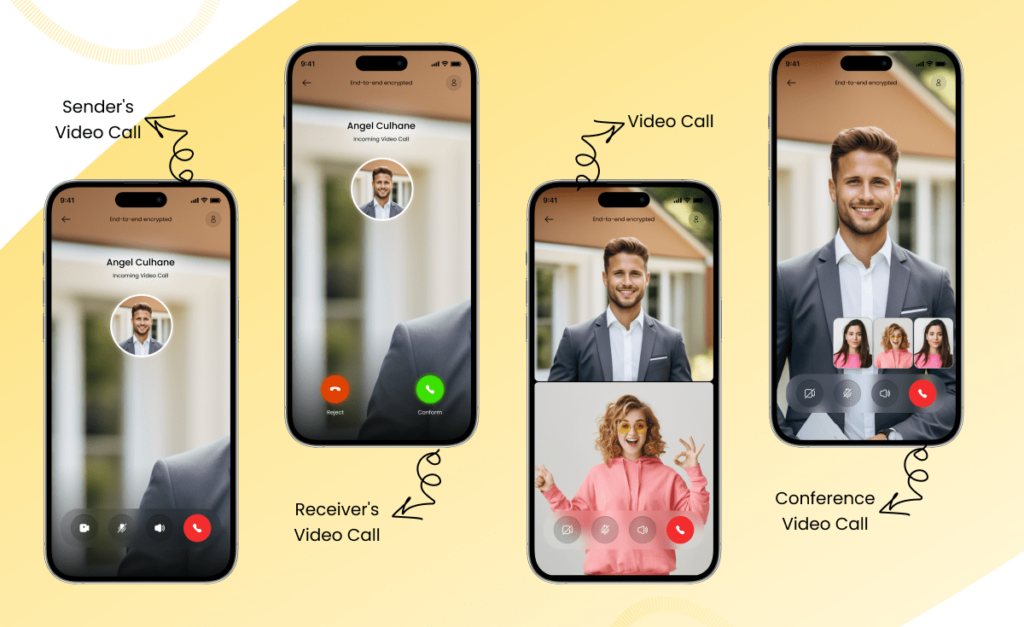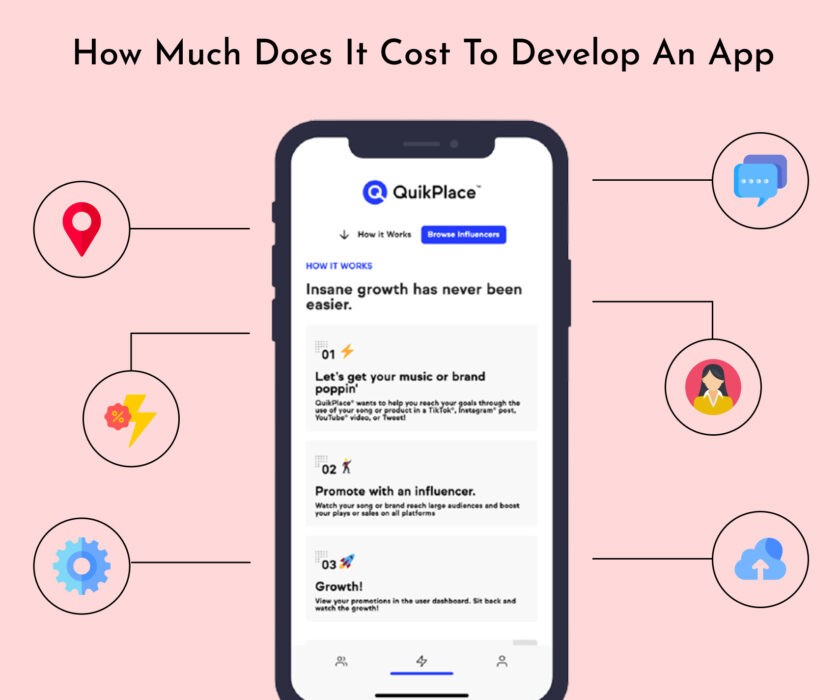
Why should you use PeerJS Webrtc for a video calling app compared to Agora?
In today’s digital world, video calling applications have become essential for personal and business communication. Whether you’re creating an app for telemedicine, online education, or virtual meetings, choosing the right real-time communication (RTC) platform is crucial for success. Two popular choices for building video calling features are PeerJS WebRTC and Agora. While both platforms provide robust capabilities, there are distinct advantages to using PeerJS WebRTC over Agora for certain use cases. In this blog, we’ll explore why PeerJS WebRTC might be a better fit for your video calling app compared to Agora.
What is Agora?
Agora is a real-time engagement platform that provides APIs and SDKs to build interactive video, voice, and live-streaming applications. It allows developers to embed features like high-quality video calling, voice chat, live streaming, and instant messaging into their apps with minimal coding. Agora is known for its low-latency communication, global scalability, and ease of integration, making it a go-to solution for businesses and developers who want to create seamless real-time communication experiences.
Agora’s platform is cloud-based, and it handles all the infrastructure and backend services required to support real-time communication. This makes it a powerful solution for applications that demand high-performance video and audio quality, such as telemedicine, online education, customer support, and social networking.
What is PeerJS?
PeerJS is an open-source JavaScript library that simplifies the process of building peer-to-peer (P2P) applications using WebRTC (Web Real-Time Communication). WebRTC is a technology that enables real-time communication such as audio, video, and data sharing directly between browsers without needing an intermediary server. PeerJS takes this complex technology and provides an easy-to-use API, making it accessible for developers to create peer-to-peer applications like video calling, file sharing, and real-time data streaming.
PeerJS essentially handles the intricacies of WebRTC by offering a higher-level abstraction, so developers don’t have to manually configure each aspect of the communication process. It streamlines the connection process, NAT traversal (network address translation), and signaling server management, allowing developers to focus on building their apps instead of worrying about low-level WebRTC complexities.
Why Choose PeerJS WebRTC Over Agora?
1. Full Customization and Control
PeerJS WebRTC is an open-source framework that gives developers complete control over their app’s architecture and communication flow. Unlike Agora, a fully managed service, PeerJS allows you to tweak every aspect of the communication protocol. This means you can build custom features, adjust the UI/UX according to your needs, and even host the WebRTC servers yourself.
With PeerJS, you’re not limited by the constraints or pricing models of a third-party service. You can scale your app as required without worrying about vendor lock-in or unexpected price hikes as your user base grows. This level of customization and control can be a significant advantage for developers looking to create highly personalized or unique video calling experiences.
Let’s Explore our customizable video calling interface built using PeerJS WebRTC, illustrating the flexibility in design and user experience.

2. Cost-Effectiveness
When it comes to building and maintaining video calling features, costs can quickly spiral out of control, especially if your app gains traction and sees significant user activity. PeerJS WebRTC can be far more cost-effective than Agora in the long run, as it enables you to run your own WebRTC servers or use open-source signaling servers.
Comparing Agora and PeerJS in terms of cost involves analyzing their usage models since Agora operates on a service-based pricing structure as Recurring costs, while PeerJS is open-source and free to use.
With Agora, you’re billed based on usage, and the costs can quickly increase with a growing number of users or video call minutes. If you have a budget-conscious project, PeerJS WebRTC offers a more predictable and manageable cost structure, particularly if you choose to host your infrastructure and reduce reliance on third-party services.
Here’s a detailed cost breakdown:
Agora Pricing (as of 2025):
Audio Calling:
$0.99 per 1,000 minutes per user.
Video Calling:
Standard Definition (SD): $3.99 per 1,000 minutes per user.
High Definition (HD): $8.99 per 1,000 minutes per user.
PeerJS Costs
PeerJS itself is free and open-source, but there are some associated costs based on your infrastructure setup. The use of PeerJS with WebRTC on a self-hosted solution, including platforms like AWS or DigitalOcean, results in server costs that range from $5 to $10 per month. This setup permits the implementation of PeerJS WebRTC, which can help in avoiding recurring expenses and achieving significant cost savings.
Cost Example Scenarios
Small App (10 Users, 1 Hour/Day, SD Video):
Agora:
$3.99 per 1,000 minutes.
Usage: 10 users × 60 minutes × 30 days = 18,000 minutes.
Cost: 18 × $3.99 = $71.82/month.
PeerJS:
Hosting: ~$10/month.
TURN Server: ~$5–$15/month.
Cost: $15–$25/month.
Medium/Large App (100 Users, 1 Hour/Day, SD Video).
Agora:
$3.99 per 1,000 minutes.
Usage: 100 users × 60 minutes × 30 days = 1,80,000 minutes.
Cost: 180 × $3.99 = $718.2/month.
PeerJS:
Hosting: ~$20/month.
TURN Server: ~$15–$25/month.
Cost: $30–$45/month.

3. Performance
PeerJS offers excellent performance for peer-to-peer communication by minimizing latency and utilizing direct connections between users. With WebRTC technology at its core, PeerJS reduces the need for intermediary servers, ensuring faster data transfer. Its efficient handling of NAT traversal and media streams further optimizes the connection process. By leveraging scalable server infrastructure, PeerJS ensures consistent performance even as your app grows. Whether you’re building a video call app or a data-sharing platform, PeerJS delivers reliable, low-latency communication with minimal resource usage.
4. No Vendor Lock-In
When using a third-party service like Agora, you depend on their infrastructure, pricing plans, and policies. Vendor lock-in is a common concern with proprietary solutions, as switching providers or transitioning to a different platform later on can be costly and time-consuming.
PeerJS WebRTC, on the other hand, avoids vendor lock-in because it is an open-source library. You have the flexibility to move your app to any infrastructure provider that suits your needs, whether it’s your own server or a cloud provider of your choice. This level of independence gives you more freedom and the ability to pivot without major disruptions down the road.
5. Scalability and Flexibility
PeerJS WebRTC offers flexibility when it comes to scalability. You can deploy WebRTC servers and signaling systems across multiple regions to optimize performance, reduce latency, and manage traffic efficiently. PeerJS also allows you to build a decentralized network of peers, which helps distribute the load and ensures a smooth experience for users.
While Agora offers scalability with its cloud-based infrastructure, it may not provide the same level of control over how resources are allocated or distributed. If you need a tailored solution for a large-scale application or specific geographic requirements, PeerJS offers more granular control to optimize scalability.

6. Open-source and Active Community Support
As an open-source project, PeerJS WebRTC benefits from an active and vibrant community. Developers can contribute, share their knowledge, and access a wealth of resources that are constantly evolving. PeerJS’s documentation and open-source nature make it a great choice for developers who are looking for a flexible, customizable solution with strong community backing.
Agora, being a proprietary service, has support channels but lacks the same level of openness and flexibility as PeerJS. If you want to benefit from open-source tools, peer support, and the freedom to tweak code, PeerJS is the clear winner.
7. Privacy and Security
With PeerJS, you have complete control over your app’s security protocols and user data. You can implement end-to-end encryption, customize authentication methods, and ensure compliance with relevant privacy regulations. PeerJS allows you to host your own signaling servers, so your data doesn’t have to go through third-party servers, adding an extra layer of privacy.
While Agora provides security features, such as end-to-end encryption and real-time monitoring, it requires you to trust the service with your user’s data. For apps that need stringent data security policies or have privacy concerns, PeerJS offers more direct control over data protection.
8. Hosting on Your Own Server
Agora restricts hosting its services on your own server because its SDK and APIs rely on Agora’s proprietary infrastructure to provide real-time audio, video, and messaging. This is a limitation if you’re looking for a fully self-hosted solution to avoid ongoing costs or maintain complete control.
PeerJS allows you to host WebRTC servers on your own infrastructure, meaning you are not dependent on an external provider’s network uptime or maintenance schedules. If you have reliable hosting infrastructure, you can avoid any interruptions that might occur due to service outages on the Agora platform. This autonomy provides peace of mind for developers and users, especially in mission-critical applications where reliability is paramount.
Build a Real-Time Video calling App with Primocys
Developing a real-time chat application or a video calling app can be quite costly with Agora’s pricing structure. However, we offer entirely free video call APIs through peerJS, enabling you to initiate your project with a reduced budget and eliminate monthly expenses.. If you’re looking to develop your web or mobile app with the perfect technology, contact Primocys.
If you want to build a top-notch video-calling app, Primocys can help you make the right choice. We are a leading web and mobile app development Company with 7 years of Experience and expert developers at PRIMOCYS!
If you too want to build an app and are unsure of how to begin the process, schedule your appointment or book your consultation today with primocys expert, our email for all your queries is info@primocys.com Let’s connect to chat.

Conclusion
Both PeerJS WebRTC and Agora are excellent choices for integrating video calling functionality into your app. However, if you prioritize customization, cost-effectiveness, scalability, control over privacy and security, and the ability to avoid vendor lock-in, PeerJS WebRTC emerges as the superior choice.
For businesses looking for an open-source, highly customizable video calling solution, PeerJS offers a powerful, flexible framework that provides long-term value and scalability. While Agora is a great option for quick deployments and built-in infrastructure, PeerJS gives you the autonomy to build a truly tailored, cost-effective solution that aligns with your specific needs.
Ultimately, the choice between PeerJS and Agora will depend on the unique requirements of your project. But if you’re looking for a solution that gives you full control, flexibility, and cost-efficiency, PeerJS WebRTC is a solid choice that’s hard to beat.




